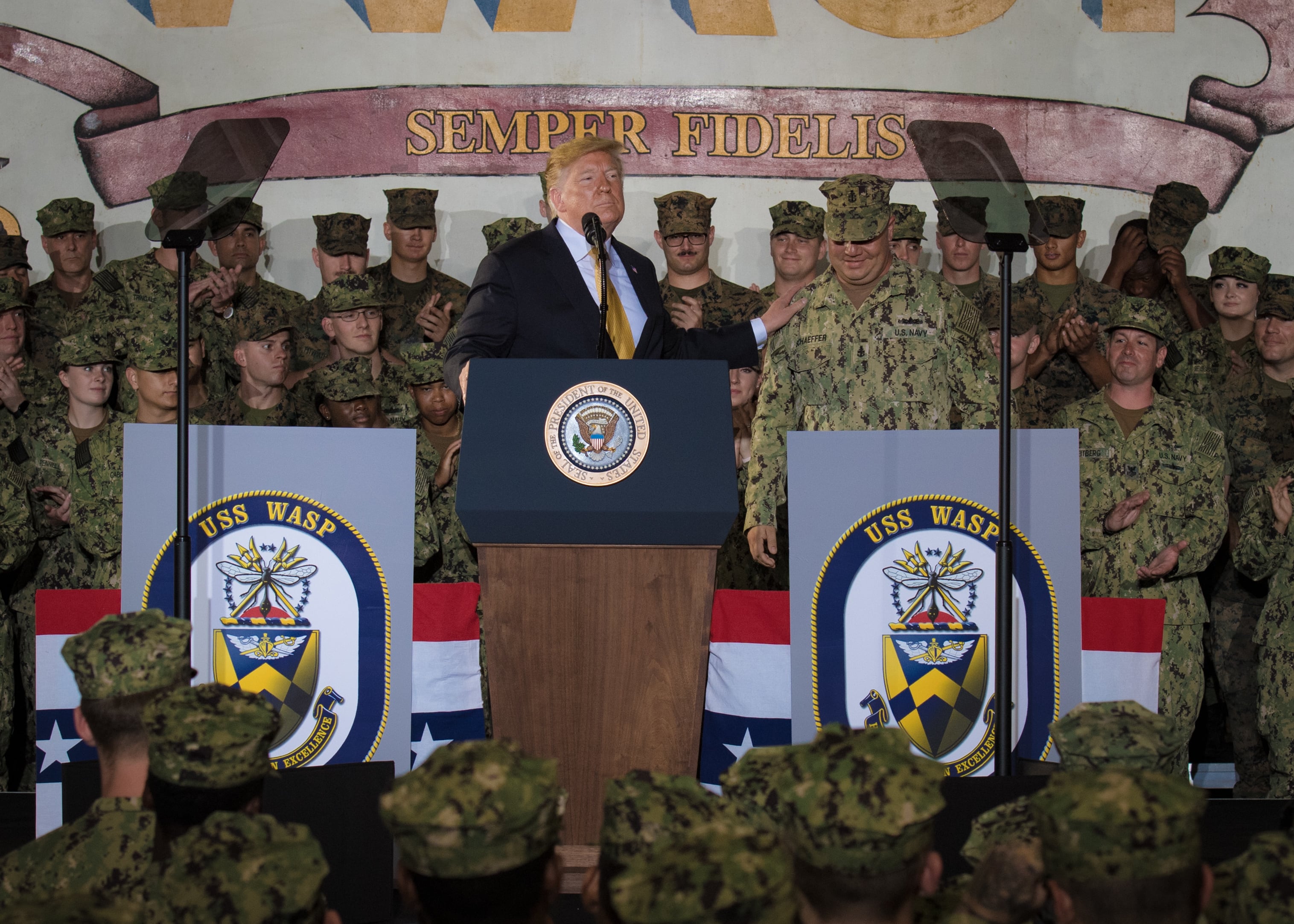WASHINGTON — For the second time in six months, President Donald Trump is searching for his next defense secretary.
After enjoying stability atop Pentagon leadership for the first two years of his presidency, Trump has been unable find a permanent appointee for his Defense Department Cabinet post since Jim Mattis was forced out of office on Jan. 1.
Acting Defense Secretary Patrick Shanahan was announced as that replacement last month, but on Tuesday withdrew his name from consideration amid reports of past domestic violence incidents involving his family. Army Secretary Mark Esper will take his place while a new nominee is chosen.
Who that will be remains unclear. In the last few months, former Army Vice Chief of Staff Jack Keane has been touted as a potential pick, but he has said publicly he is not interested in the job. White House officials have not yet offered a timeline for a new nominee.
Here’s a look at some of the likely names being considered:
RELATED

Mark Esper
By virtue of being the acting defense secretary, Esper has the inside track as the most likely nominee for the permanent post. The former Raytheon lobbyist was easily confirmed by the Senate two years ago and has received generally positive marks from members of Congress.
The 56-year-old Esper served in the Army during Operation Desert Shield and later served as chief of staff at the conservative Heritage Foundation before entering the private sector. He has recused himself from any defense matters relating to his former employer, a decision which could cause complications as he takes over the top Pentagon job.
If Trump were to nominate him, Esper would have to step down from the acting secretary post under rules outlined in the vacancy act. That could cause more short-term headaches for Pentagon planners, especially if his confirmation process moves as slowly as Shanahan’s and others in recent history.
RELATED

Mike Pompeo
Trump’s Secretary of State has taken the lead role in the administration’s recent response to Iranian actions in the Middle East, and was coordinating planning with Central Command officials in Florida when Shanahan’s departure was announced.
The 55-year-old served in the Army for five years and previously led the Central Intelligence Agency for Trump. His transition from the State Department to the Defense Department could help calm congressional fears that military leadership has been overlooked amid a host of international crises.
But Pompeo’s nomination to be secretary of State drew considerable opposition from Senate Democrats 14 months ago, and his nomination to the top defense top could bring even more criticism, given aggressive tone in the recent Iran response.
RELATED

Tom Cotton
The Republican Arkansas senator has been a rumored pick for a Pentagon leadership post since Trump took office. At 42, he could become one of the youngest Cabinet appointees in recent history and the first veteran of the Iraq and Afghanistan wars to serve as defense secretary (he deployed to both as a soldier in the early 2000s).
Cotton has been a vocal critic of Iran and generally a supporter of Trump’s defense policies, although he has criticized the president’s announced plans for drawdowns of U.S. forces overseas.
But picking a member of the Senate could be problematic for Trump, given the tenuous balance of power in the chamber. And Cotton has pushed back on the idea in the past, saying he prefers to stay in his current role.
Richard Spencer
The current Navy secretary is a former Marine aviator and career financier who has long had ties to the Washington defense establishment.
In his current role he has played up his business background, finding ways to apply civilian industry best practices to make Navy processes more efficient. He took a similar approach to try and fix Navy culture in the wake of 17 sailor deaths in 2017, the result of preventable collisions. Spencer reached out to major industrial leaders such as large shipping companies to see how they dealt with major accidents.
That could appeal to Trump, who has shown a preference for Pentagon nominees with close ties to the defense industry. But picking Spencer would also take away the lone remaining top Pentagon official who has gained Senate confirmation, with the Army, Air Force and deputy Defense secretary posts all currently filled with temporary appointees.
Someone completely unexpected
When Trump fired then-Veterans Affairs Secretary David Shulkin in early 2018, he shocked the veterans community by tapping relatively unknown White House physician Rear Adm. Ronny Jackson for the post. That nomination ultimately failed, but showed that Trump isn’t afraid to go with unconventional and unexpected names, even for high-level Cabinet jobs.
Sen. Lindsey Graham, R-S.C., has had his named floated in the past and proven to be a staunch — in controversial — defender of the president. Energy Secretary Rick Perry, an Air Force vet, has had his name connected to numerous other positions within the administration. Both are potential dark horse picks.
Trump also could decide to wait several months before even considering a permanent defense secretary replacement. In a CBS interview earlier this year, he said he likes the “acting” appointments because “it gives me more flexibility,” even while it raises congressional concerns.
Leo covers Congress, Veterans Affairs and the White House for Military Times. He has covered Washington, D.C. since 2004, focusing on military personnel and veterans policies. His work has earned numerous honors, including a 2009 Polk award, a 2010 National Headliner Award, the IAVA Leadership in Journalism award and the VFW News Media award.
Aaron Mehta was deputy editor and senior Pentagon correspondent for Defense News, covering policy, strategy and acquisition at the highest levels of the Defense Department and its international partners.
Joe Gould was the senior Pentagon reporter for Defense News, covering the intersection of national security policy, politics and the defense industry. He had previously served as Congress reporter.





